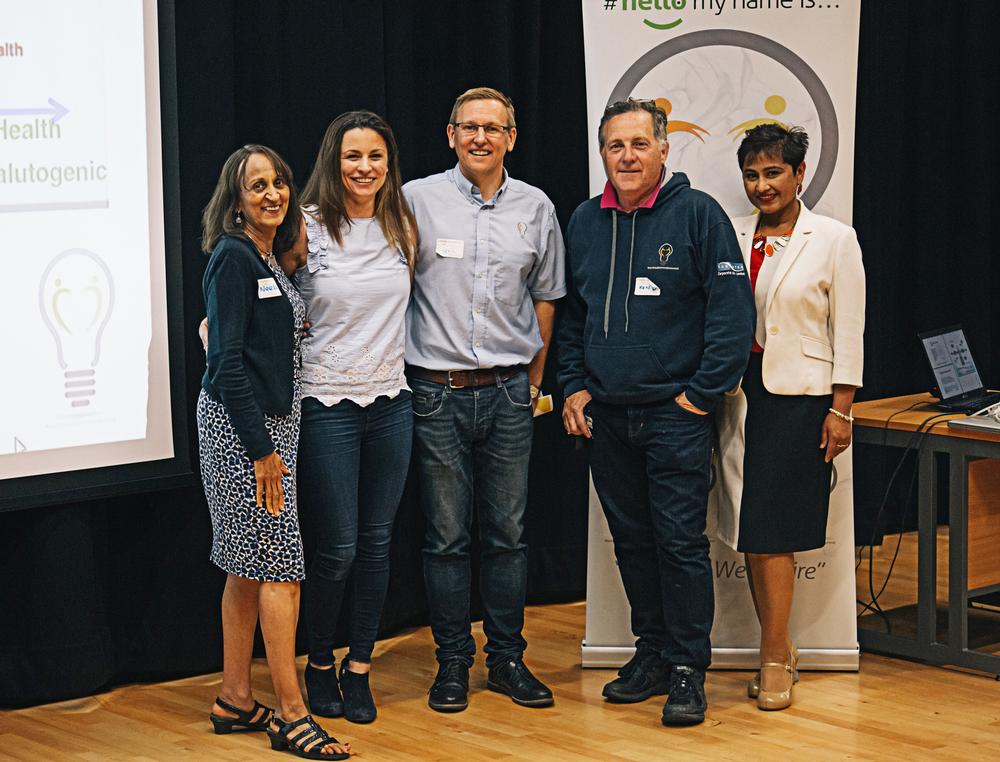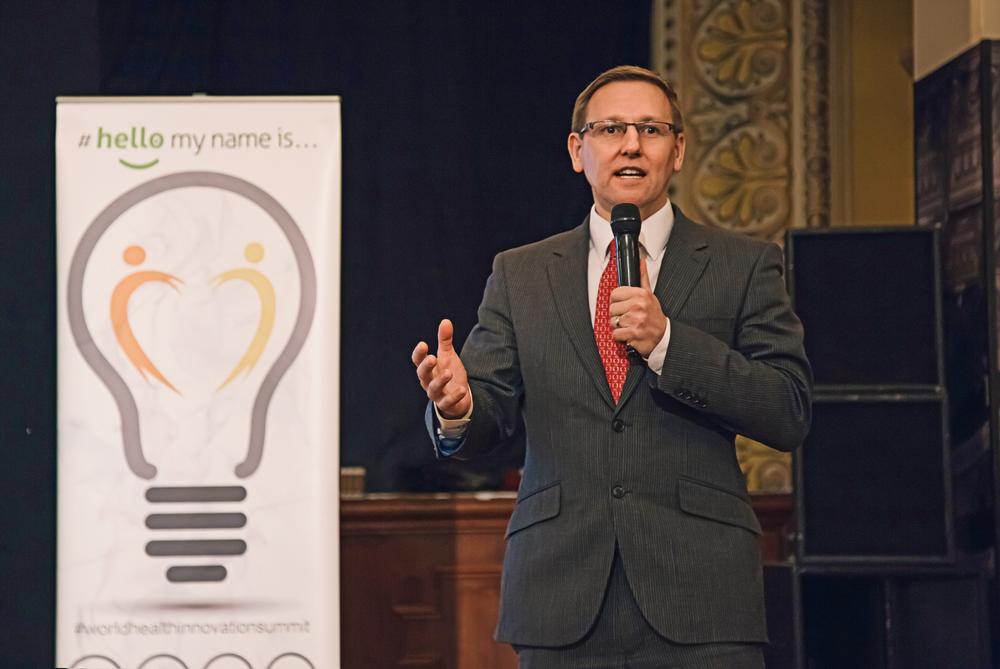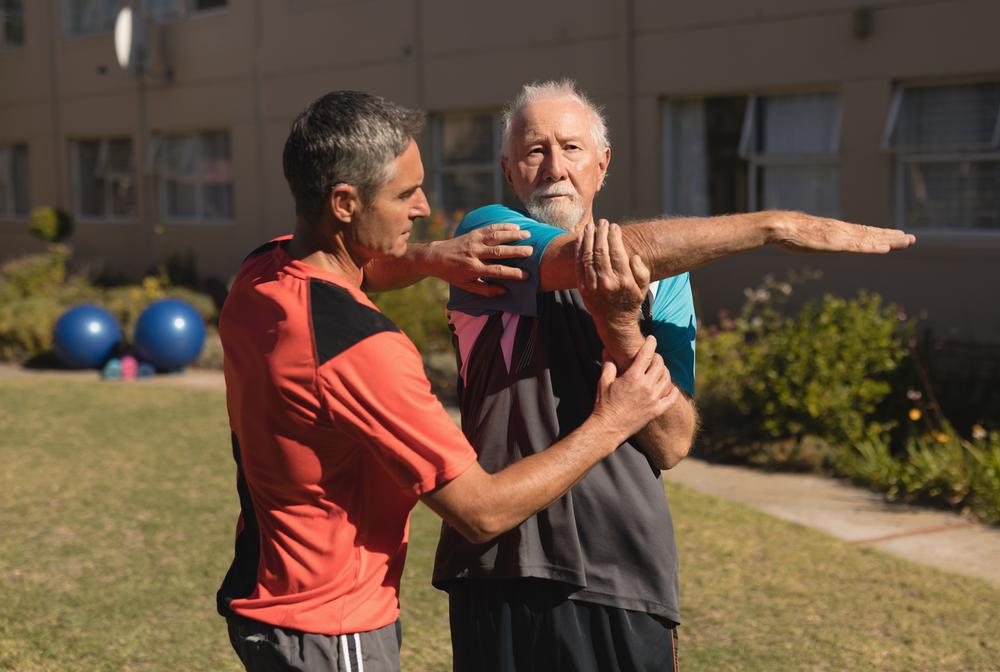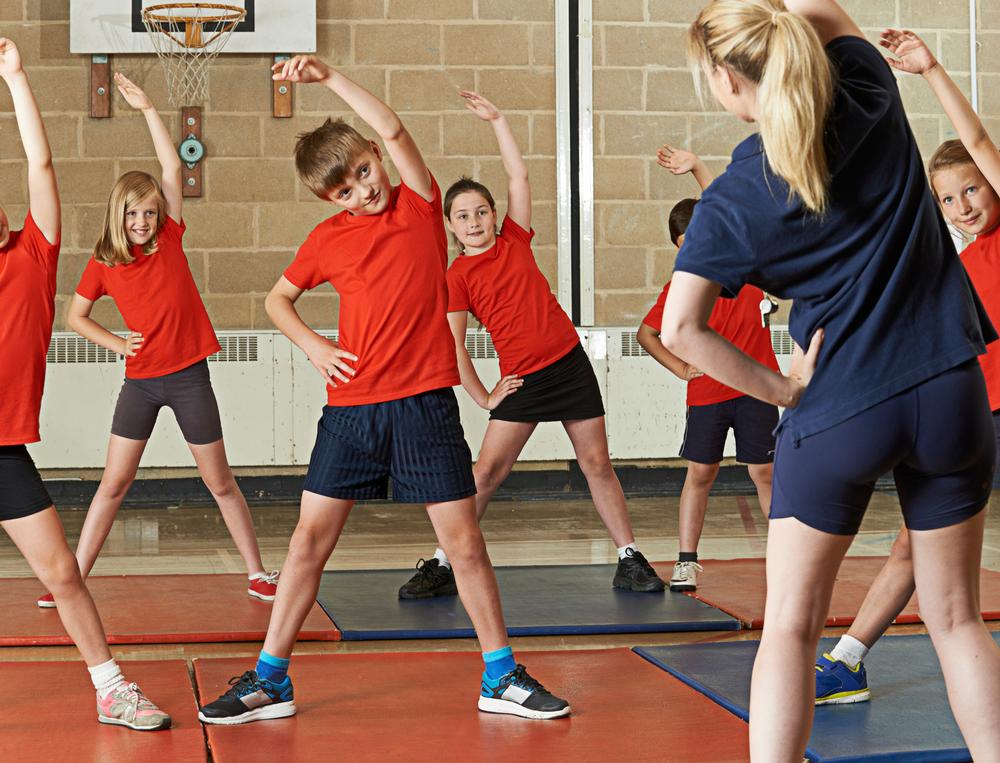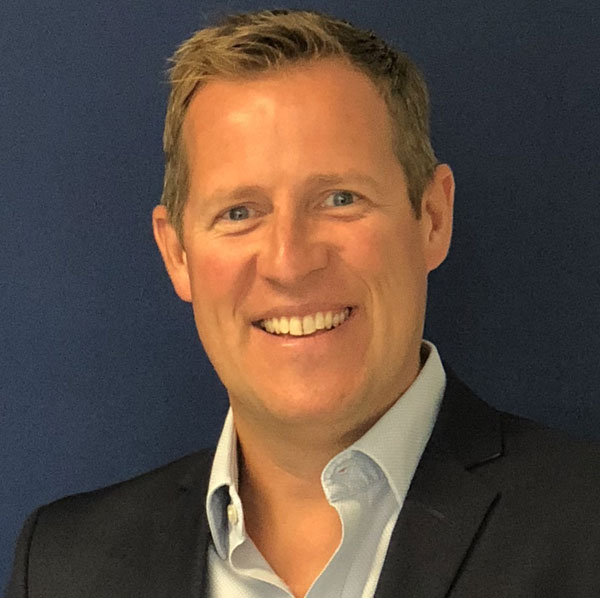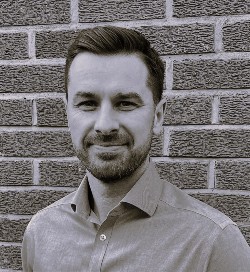What’s your background?
I’m from Dublin, Ireland, and have worked in the health system for 20 years. I’m grateful to the Irish Health Service because it gave me a fantastic education that allowed me to progress through the ranks. I’m not a clinician, but work well with clinicians – I understand what they need (time to treat) – and moved through the system, working in areas such as community care, health promotion and acute hospitals. My last role was chief officer of the National Haemophilia Council.
How did WHIS come about?
My family and I left Ireland just over five years ago, moving to Cumbria, and I joined the NHS. I was shocked to see the pressures on the system and the consequent staff retention issues – people were constantly leaving.
My ethos is one of consistent, high-quality patient-centred care, and you’re simply not going to deliver that if you’re losing staff on a continuous basis. You’ll also struggle to attract good people in the first place. I wanted to help Cumbria with its problems around recruiting and retaining staff.
People attract people, so I came up with the idea of a platform – which I called the World Health Innovation Summit (WHIS) – designed to attract thought leaders to Cumbria. The thinking was that we’d support them in disseminating their knowledge through the platform and peer-reviewed journals, and that in turn would attract good staff, showcasing it as a great place to live, work and invest.
That was the initial concept for WHIS, which we launched in 2015. However, very quickly after our first event we realised there was a lot more to it. There are so many challenges facing the health service: rising levels of obesity and other lifestyle diseases, and an ageing population, all set against a projected shortfall of 18 million healthcare workers globally by 2030 (source: BMJ). We realised WHIS had the chance to become a global preventative healthcare platform, supporting people around the world in improving their health and wellbeing.
So, what is WHIS now?
WHIS has evolved into precisely this preventative healthcare platform. It aims to empower people to improve their health and wellbeing by facilitating effective community engagement. It’s a preventative healthcare platform for patients, clinicians, managers, the voluntary sector, education and the business community. It’s open and transparent and deliberately brings together people from other industries whose new ideas and different perspectives create new opportunities. It supports collaboration and breaks down silo working.
We’re a social enterprise: we aim to generate income and reinvest money and value generated from our programmes back into the local communities where we work.
Our model is based on combining human, social and intellectual capital: a knowledge transfer platform that exists to support the NHS and other health economies globally.
We run events that attract people to a city, and we bring in experts to share their knowledge – people of influence who attract key decisionmakers. For example, we brought Roland Schatz, the special advisor to the UN director general, to Cumbria to discuss investment opportunities and job creation. When you bring in such people, that creates business opportunities. Our events and activities have boosted the local economy and created new jobs and opportunities for the region.
We also create programmes that organisations can tap into [see below], and we can help those who have a good idea themselves to get it off the ground. In turn, they can affiliate themselves with WHIS and use our platform to access the marketplace; we want to develop WHIS as a quality assurance mark for products and services which are available through the platform.
WHIS makes knowledge and good ideas globally scaleable. All the great social prescribing programmes that are already out there can be shared. All the products and services related to health and wellbeing suddenly have a means to elevate what they do. WHIS can take something from being a local initiative to having worldwide reach.
What initiatives has WHIS been involved in so far?
We’ve held summits and activities in cities across the UK, as well as in places such as Thailand and Greece. Meanwhile, our programmes and wellness activities have been tested in Cumbria.
One of our big success stories has been WHISKids – a programme for schools that focuses predominantly on mental health and wellbeing. We support children with physical and emotional wellbeing advice and explain the importance of a balanced diet and being active. We’ve had a couple of thousand children go through the programme in Cumbria over the last couple of years and the results are impressive: kids experience an average 20 per cent increase in their mental wellbeing as a result.
Other programmes include WHISAtwork (stress management in the workplace) and WHISSeniors (falls prevention, quality of life and loneliness prevention).
We’re also collaborating to develop new programmes, including a cancer wellbeing programme and a global pregnancy wellbeing programme that’s based on health education, health promotion and disease prevention. These will have a positive effect on people and communities over the short, medium and long term, and would never have happened without the WHIS platform.
How’s it all funded?
Some of our events require delegates to purchase tickets; others have sponsors. Companies can also exhibit at those events. Organisations also pay to use our programmes: schools pay to use WHISKids, for example. Once overheads are covered, the profits are reinvested back into the community.
Other programmes might be funded: for example, the cancer programmes we’ve run so far have been funded through Macmillan and NHS Cumbria. Funding is out there, provided you’re able to bring and develop value.
But ultimately, our business model is based on generating value and sharing it through a circular economy: we provide services, partnerships, sponsorships, CSR, impact investing and so on, and can be commissioned to deliver large-scale projects.
An independent report demonstrated that every £1 invested in our activities generates £36 in terms of social return on investment. We can stand up and say: ‘You give us £1m and we’ll generate £36m back to your local economy.’ What mayor around the world is not going to want that sort of social return on investment?
Importantly, everything we do can be done in any community by them joining the WHIS federation. They write to us, outline their plans, and we share our experiences with them and help them adopt the WHIS model.
WHIS is a platform that supports people and communities taking positive action and our ultimate objective is to improve people’s health and wellbeing while creating a new ecosystem through a circular economy.
You’re involved in the UN’s SDG Cities project. Tell us more about that?
The SDG 25 + 5 Cities Leadership platform is a very ambitious programme led by the UN and run through a foundation. At its heart are 17 sustainable development goals (SDGs), including no poverty, zero hunger, good health and wellbeing, quality education, climate action, clean water and sanitation and so on.
The project has identified 25 cities and five indigenous communities around the world to become lighthouses, where experts in their field will come together and help those cities deliver the sustainable development goals by 2025.
In this project, I’m involved as an individual expert rather than specifically representing WHIS. My area of focus is SDG 3: good health and wellbeing. We’ll be working with institutions, universities and city councils in the 25 cities to identify ways to implement the sustainable development goals and raising funding through the foundation via impact investing.
How can the physical activity sector collaborate with WHIS and SDG Cities?
Physical activity will play a huge part in all of our WHIS and SDG3 programmes: we disseminate information about healthy living and welcome support and knowledge sharing.
I see huge scope for collaboration with the physical activity sector. I believe we can work together to create a new ecosystem that supports community wellbeing, and that’s also great for the local economy and local job creation. This is an opportunity to develop a strategy with long-term benefits.
Initiatives such as Parkrun, for example, could go into every one of our cities. We also plan to work with hoteliers, health and wellness clubs and so on as part of the Sustainable Development Goals ‘Cities’ initiative.
In addition to the 25 cities, we’re also setting up what we’re calling Hubs – cities that will become incubators for new ideas and new programmes that – once prototyped and proven – can be rolled out to the 25. We plan to bring in leading experts to work with us on creating these solutions, and we’ll work with city officials to test them. As part of that, we want to develop next generation health and wellbeing centres, offering a mix of clinical, physical and emotional wellbeing services.
There are clear opportunities to partner with WHIS and SDG to develop solutions to support communities. We’re looking to work with like-minded businesses that share the same values.
Where do you see WHIS in the next 5-10 years?
WHIS will become the world’s leading platform for health and wellbeing, as it can be shared and scaled to support any community and bring value. We’re already engaged in the UAE, Thailand, Nigeria, Kenya, Switzerland and the US.
We’ve built WHIS on trust and it grows by attracting people who understand what we do is for the common good. We provide the methodology and the value proposition. They take ownership and generate the income.
Our support for the SDG Cities programme also presents opportunities. I’m due to meet with the Pope in June, for example, and work closely with the EU and governments around the world to implement SDG goals. There are over 100 million people living in cities on the SDG platform, and there’s funding to invest in initiatives that have been proven to work. WHIS is a front-runner with the opportunity to scale up its operations.
What’s your ultimate goal for WHIS?
To support a new, preventative model of wellness, health and social care. We share knowledge as a way of empowering local people to improve their health and wellbeing.
We believe we have to take action so our kids can grow up in a world in which we can all thrive. We can’t solve all society’s challenges immediately, but we believe good health is a common denominator: if you’re healthy, fit and well, you’re more likely to be contributing positively to society.
We want to move from a gig economy to a knowledge economy, with a circular model that leaves no-one behind.








